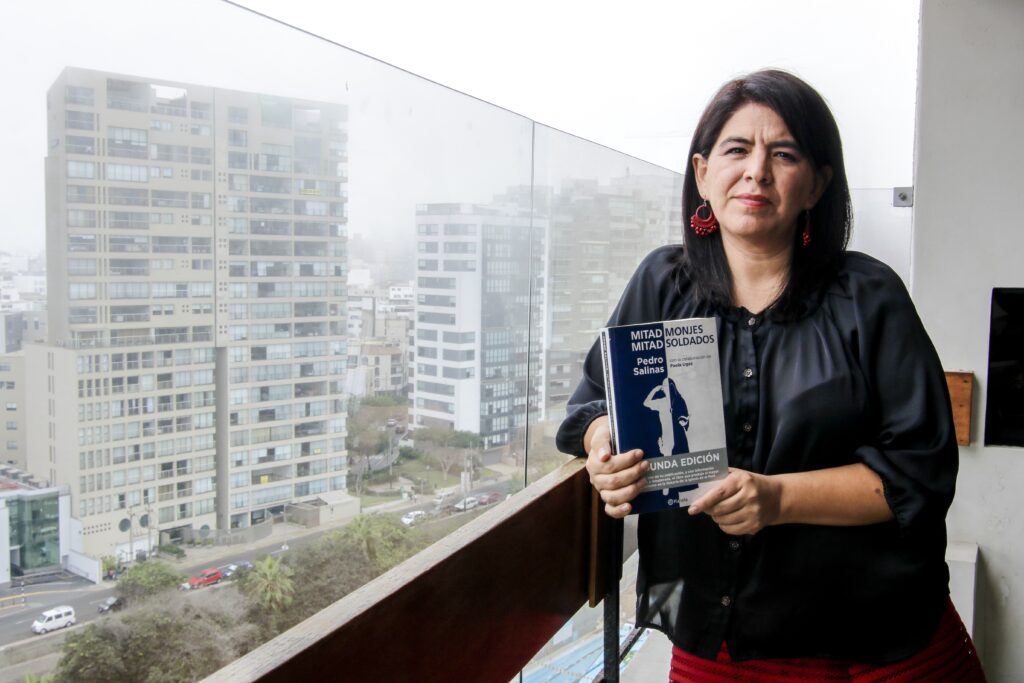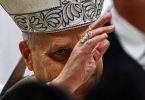
by Eduardo Campos Lima, OSV News
(OSV News) — The Vatican’s decision to expel 10 important members from the Sodalitium Christianae Vitae, a scandal-plagued society of apostolic life founded in Peru in 1971, was received with surprise — and at times shock — by many in Peru.
Once a powerful Catholic institution that gathered members of the Peruvian elite, the Sodalitium saw itself hit by dozens of denouncements of sexual and psychological abuse, physical violence, misappropriation of funds, and other crimes by former members and journalists.
A Vatican inquiry into the organization included a 2023 investigative mission to Peru, formed by Maltese Archbishop Charles Scicluna, who is the adjunct secretary of the Dicastery for the Doctrine of the Faith, and Spanish Msgr. Jordi Bertomeu, also a member of that department. They gathered documents and interviewed members of the SCV, its alleged victims and journalists during their trip.
As a result of the investigation, Luis Fernando Figari, the Sodalitium’s founder, was expelled from the group in August. For some, the expulsions from the SCV — based on a list that was released on Sept. 25 — is a response to many abuse survivors waiting for justice.
“We got used to seeing the Sodalitium as an untouchable organization, one that could do whatever it wanted and nothing would happen to it. That’s why the list surprised many people,” journalist Paola Ugaz, who has co-authored a book on the Sodalitium as well as published several investigative articles about it, told OSV News.
That was the case in Arequipa, Peru’s second largest city, where the SCV maintains San Pablo Catholic University. Two names on the list have a direct involvement with the institution. Miguel Salazar, the university’s lay Pro-Rector of People and Culture, and Father Rafael Ismodes, its chaplain.
“The news caused a magnitude 10 earthquake in that city and led the university to issue a statement, in which it said it’s facing a ‘challenging moment’ instead of acknowledging the errors,” Ugaz said.
A note signed by rector Alonso Quintanilla Pérez-Wicht said that both the university’s governing bodies and the two expelled members of the Sodalitium decided that the best thing to do was to remove them from the institution.
“In this challenging moment I invite you to unite in one certainty: we are an academic community called to do good no matter the difficult circumstances that we may face,” Pérez-Wicht said in the statement.
The Vatican list included two other priests, Father Erwin Scheuch and Father Daniel Cardó, and Archbishop emeritus José Antonio Eguren of Piura. The other expelled members are all laymen: the former SCV superior general Eduardo Regal, Humberto del Castillo, Oscar Tokumura, Ricardo Trenemann and Alejandro Bermudez.
Reaction also came from the Archdiocese of Denver, where many Sodalitium members live in a community house at Holy Name Catholic Parish.
In a statement released Sept. 25, the archdiocese declared it was “shocked and saddened” by the expulsions and noted that Father Cardó has served as a vicar for 17 years in Colorado without facing “a single disciplinary action against him.” The note also said that “the once-dying Holy Name parish community in Sheridan is now thriving” due to Father Cardó’s work.
The Archdiocese of Denver’s statement concluded by saying that former superior Regal and journalist Bermudez “have served faithfully and with distinction” there.
Bermudez served as the longtime executive director of Catholic News Agency (CNA) and the ACI Group, part of the EWTN family, until his retirement Dec. 31, 2022.
While the Vatican document mentioned among reasons for the expulsions physical abuse “including sadism and violence,” deploying tactics to “break the will of subordinates,” spiritual abuse, abuse of authority including the cover-up of crimes, and abuse in the administration of church goods, one case, without pointing to a particular name, is described as “abuse in the exercise of the apostolate of journalism.”
OSV News asked the nunciature in Peru, which issued the Sept. 25 document about the expulsion, for a definition regarding the journalism abuse charge and is awaiting an answer.
Bermudez is the only one named in the Vatican document by his profession as “el periodista,” or “journalist” in Spanish.
OSV News reached out to Bermudez for comment but he declined via email to be interviewed, instead referring OSV News to a post on X, formerly known as Twitter, in which he commented on his expulsion. In the email to OSV News he stated: “As I explain in my X account, being a journalist I do not answer questions, if anything, I make them.”
In his Sept. 28 post, Bermudez said that “the accusation against me is that I have ‘abused my journalistic apostolate;’ that my comments on Twitter/X have been a cause of scandal, or that certain individuals or institutions I have been associated are a cause of scandal to the Church,” he wrote.
Investigative journalist Ugaz pointed out that she spoke to people who experienced “abuse in the exercise of the apostolate of journalism” from Bermudez.
“He notoriously insulted subordinates, especially women. Peruvian culture is known for its misogyny, and maltreating women is something common in the press industry,” she said. “That punishment showed that this kind of behavior is not OK,” Ugaz said.
A former CNA employee who asked not to be identified told OSV News, “You could hear with some frequency Alejandro yelling and verbally berating editors.”
The CNA employee could not hear the specifics of what was said, but said the editors would often “place themselves as the shock absorbers in between Alejandro and the writers,” absorbing “a lot of the verbal abuse” Bermudez displayed if a story did not conform to his editorial demands. In some cases, said the former CNA employee, the writers were directly subjected to verbal abuse by Bermudez, including “derogatory terms written in messages and emails,” as well as occasional verbal attacks in person.
For his part, Bermudez wrote on his social media post: “What I know is this: my community has been investigated. And I say ‘my community’ because I will never stop being a Sodalit,” he said. “God called me to this vocation and I will die a Sodalit. I have the moral certainty that God called me to this vocation. I am still consecrated before God, and I will continue to dedicate myself to this apostolate, despite these allegations.”
Bermudez also criticized the investigation of Archbishop Scicluna and Msgr. Bertomeu.
“What could two experts in sexual abuse contribute to an investigation of alleged economic corruption in the Sodalitium?” he asked.
In Ugaz’s opinion, however, the expulsions demonstrate that Archbishop Scicluna and Msgr. Bertomeu have been doing “a great work of listening to the victims and denouncers with professionalism and attention.”
In his X post, Bermudez also accused several journalists working “for rival publications” or having “different points of view from me on issues in the Church” of filing “the ‘canonical’ complaints” against him. One of them is Pedro Salinas.
Salinas, a former SCV member and Peruvian investigative journalist who co-authored a book with Ugaz and has been a key denouncer of the organization’s crimes, told OSV News that “the list” of those expelled “is highly significant, and that’s why it was received with relief by many in Peru.”
“Almost all of them appear in my book, which was consulted by the investigators,” he said.
The measure reveals that Pope Francis is opening a path toward justice and reparation, Salinas stressed. Like many other denouncers, he also hopes that the inquiry will result in tougher measures against the Sodalitium’s past leaders and the group as a whole.
For some abuse survivors, however, justice will be served only when the SCV “abusers” are taken to the civil authorities.
“For me, the actions taken against those SCV members didn’t have an impact. They were expelled, but are free to walk on the streets,” José Enrique Escardó, the first Sodalitium member to denounce abuse in the group 24 years ago, told OSV News.
Escardó described the Vatican decisions as “conceived to create a media impact and give the impression that something is being done.”
“The sanctioned priests, as well as Archbishop Eguren, have not lost their clerical state nor have been denounced to the justice (system). It’s an irresponsibility, in my opinion,” he said.
The church’s message appears to be that “the Sodalitium is good once you remove the rotten apples,” Escardó said.
Ugaz thinks that it’s the beginning of justice, something that brought relief for survivors and denouncers like her.
“It was necessary that people from other countries came to Peru in order to change that history of impunity. We’re not happy about their expulsions, because that is a tragic history. But justice is becoming real,” she said.






